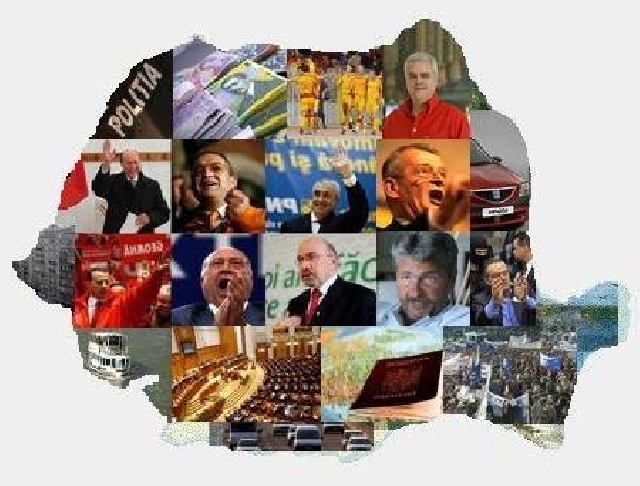The Week in Review, 13 – 20 September
A look at the headline-making events this past week

Florentin Căpitănescu, 20.09.2014, 01:08
Romania and the energy market
This week, Romania has joined the ranks of countries to face a cut in Russian gas deliveries, following a unilateral decision from Russia and without any prior notice. Although in Romania’s case, the amount of the cut is not worrying, Bucharest fears that Moscow is now only experimenting with a practice it may use as a weapon in winter. Romania’s minister delegate for energy Razvan Nicolescu has promised that people will not be affected in winter, irrespective of Russia’s policy in the energy field. In preparation for what’s to come, Parliament’s decision-making body, the Chamber of Deputies, has passed a bill to amend and complement the law on electricity and natural gas and the law on oil. One new provision is to postpone the liberalisation of gas prices for another two years. Romania previously agreed with its foreign lenders, the International Monetary Fund, the European Commission and the World Bank, to liberalise prices on the gas market as of 31st December 2018. Prime minister Victor Ponta said the move was postponed because the population would not be able to cope with higher prices without state help. In another move, the government in Bucharest has been trying to persuade the Italian electricity company Enel, which is involved in the production and distribution of electricity, not to give up its operations in Romania. Enel’s sudden decision came as a surprise for economic analysts, because the company has had significant profits on the local energy market. Experts say the pull-out of Enel, which is considered a strategic partner, may discourage other potential foreign investors.
The reduction of employers’ social security contributions
A controversial regulation on the 5% cut in employers’ social security contributions will come into force on 1st October, following its being signed into law by president Traian Basescu. The latter said that, while the measure is useful, it leads to losses the government will not be able to cover, in particular in 2015. The president says the social security budget will thus lose 3.2 billion euros, which might be compensated for through an increase in taxes. The government says, however, that the cut in social security contributions, which was insistently requested by the business community, will reduce fiscal pressure on entrepreneurs and create new jobs. The centre-right opposition has criticised the timing of the new law, just two months before the presidential elections, while trade unions say it only boosts the gains of private companies, especially multinational firms. The cut in social security contributions for employers has not received the approval of Romania’s foreign lenders, either. In fact, new talks with the international financial institutions started again in Brussels this week.
Romania supports Ukraine’s coming closer to the European Union
The foreign ministry in Bucharest has hailed the ratification by the European Parliament and Kiev’s Parliament of Ukraine’s association agreement with the European Union. The Romanian ministry says the vote in Strasbourg and Kiev confirms Ukraine’s progress on the path to Europe. Romania has also reiterated its firm support for the European future embraced freely by the Ukrainian people, hoping the agreement will by ratified by the other EU member states as soon as possible. In July, Romania was the first EU state to ratify the association agreements between the European Union and three ex-Soviet states, the Republic of Moldova, Georgia and Ukraine.
The regionalisation of Romania as seen by the Democratic Union of Ethnic Hungarians in Romania
A junior partner in the government, the Democratic Union of Ethnic Hungarians in Romania has made public a regionalisation project that also takes into account ethnic considerations. Neither the ruling parties, such as the Social Democratic Party, nor the opposition parties, such as the Liberal Democratic Party and the National Liberal Party, believe the project has any chances of succeeding. If implemented, however, the proposal of the Democratic Union of Ethnic Hungarians would make the Szeckler Country official. Currently covering three different counties in central Romania, this area is home to the largest number of ethnic Hungarians. The representatives of the three parties warn the proposal is not in line with the Constitution and recall that Romania is seen as an example in the European Union when it comes to respecting the rights of ethnic minorities. The leader of the Democratic Union of Ethnic Hungarians in Romania, Kelemen Hunor, says, however, that his party is not seeking separation.
Fresh flooding in Romania
Four counties in the west and south-west of Romania, namely Timis, Caras Severin, Gorj and Mehedinti, have been affected by flooding. The toll includes human casualties and material damage. The government has approved emergency aid for the people who have lost their homes.
A new edition of RadiRo
The second RadiRo Festival starts this week-end in Bucharest. Dedicated exclusively to radio orchestras, this is the only festival of its kind in Europe. Apart from the Romanian Radio Orchestra, it features symphonic radio orchestras from Finland, the Czech Republic, Germany and France. The event, which comes to an end on 27th September, is organised by Radio Romania.




























